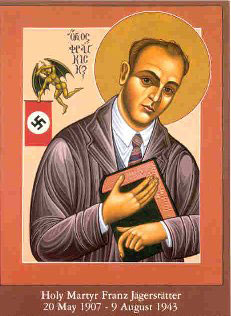 I am in the U.K. for a family holiday. We’re celebrating the 50th wedding anniversary of my wife Joy’s parents, and our 10th anniversary, in her home country. Everyone here is quite impressed with Gordon Brown’s first few weeks in office and the leadership he has shown around the terrorist attack that came just days after he took office, the domestic crisis of flooding, another outbreak of foot and mouth disease among cattle, and his first visit to the United States since becoming the British prime minister. The British press reported how professional Brown was with President Bush, affirming the U.K./U.S. relationship for the long term while keeping the American president suitably at arms length—a great relief for the British people, who almost universally feel that former Prime Minister Tony Blair was much too close to Bush and his policies in Iraq. That Brown made his visit to the U.N. Secretary General in New York the highlight of his trip, and not his time with Bush in Washington, pleased the British public.
I am in the U.K. for a family holiday. We’re celebrating the 50th wedding anniversary of my wife Joy’s parents, and our 10th anniversary, in her home country. Everyone here is quite impressed with Gordon Brown’s first few weeks in office and the leadership he has shown around the terrorist attack that came just days after he took office, the domestic crisis of flooding, another outbreak of foot and mouth disease among cattle, and his first visit to the United States since becoming the British prime minister. The British press reported how professional Brown was with President Bush, affirming the U.K./U.S. relationship for the long term while keeping the American president suitably at arms length—a great relief for the British people, who almost universally feel that former Prime Minister Tony Blair was much too close to Bush and his policies in Iraq. That Brown made his visit to the U.N. Secretary General in New York the highlight of his trip, and not his time with Bush in Washington, pleased the British public.
In his speech at the U.N., Brown helped to make some real breakthroughs on both Darfur and global poverty. The British newspaper The Guardian reported his description of the situation in Darfur as the “greatest humanitarian disaster” the world faces today, and his announcement that the U.K., France, and the U.S. would submit a resolution to the Security Council mandating a peacekeeping force. The resolution was passed later that same day.
But the heart of his speech was global poverty and the challenge of meeting the Millennium Development Goals. In the text of his speech, Brown said that after seven years “it is already clear that our pace is too slow; our direction too uncertain; our vision at risk. … We cannot allow our promises that became pledges to descend into just aspirations, and then wishful thinking, and then only words that symbolize broken promises.”
He then challenged his audience:
And so my argument is simple: The greatest of evils that touches the deepest places of conscience demands the greatest of endeavor. The greatest of challenges now demands the boldest of initiatives. To address the worst of poverty we urgently need to summon up the best efforts of humanity.
I want to summon into existence the greatest coalition of conscience in pursuit of the greatest of causes. And I firmly believe that if we can discover common purpose there is no failing in today’s world that cannot be addressed by mobilizing our strengths, no individual struggle that drags people down that cannot benefit from a renewed public purpose that can lift people up.
To find that common purpose, he said:
Our objectives cannot be achieved by governments alone, however well-intentioned; or private sector alone, however generous; or NGOs or faith groups alone, however well-meaning or determined—it can only be achieved in a genuine partnership together.
After addressing governments and businesses, the prime minister went on:
Let me say to faith groups and NGOs—your moral outrage at avoidable poverty has led you to work for the greatest of causes, the highest of ideals, and become the leaders of the campaign to make poverty history. Imagine what more you can accomplish if the energy to oppose and expose harnessed to the energy to propose and inspire is given more support by the rest of us—businesses, citizens, and governments.
It was a challenging and inspiring speech. I think we may have a real leader here in the U.K.

